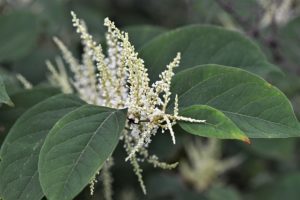Mailing List
To help us keep you updated with our handy guides and other useful news, please consider signing up to our mailing list.
It's quick and easy, and we promise not to send you spam or share your details with third parties.

The Supreme Court has recently made an important decision offering clarity on when landowners may be liable for Japanese knotweed encroaching onto neighbouring property.
Japanese knotweed is more than just a stubborn plant. Its presence can affect a property’s value, complicate financing and delay sales. Understanding liability is critical to avoiding costly disputes and protecting asset value.
Case Background
Mr Davies purchased a property in 2004, where, unbeknown to him, Japanese knotweed was already spreading from neighbouring council land. He became aware of the knotweed on his property in 2017. The council had become aware of the issue in 2013, however only began treating the infestation in 2018. Mr Davies issued a claim against the council for a breach of duty for not treating and containing the infestation sooner, causing a diminution in value of his property as a result of the stigma attached to it (having had Japanese knotweed present on his property).
The Supreme Court ruled that while a diminution in value after treatment has been carried out can be claimed for in principle, a claimant must prove that the breach of duty actually caused that loss. In this instance, the diminution in value had already occurred years before the council were legally on notice to act, so no damages were payable in this instance. This is because the knotweed was already on the property before Mr Davies purchased it in 2004, and prior to legislation being in place requiring the council to treat it.
Key Takeaways
Duty to Act – since 2014, landowners are required to control the spread of knotweed from their property. Failure to do so could expose them to claims and fines.
Timing is critical – if a knotweed encroachment occurred before that duty arose, liability may not follow. Landowners should, however, still ensure that infestations are properly treated to comply with the law.
Residual impact is real – even when treated, knotweed can reduce the market value of a property. Buyers, lenders and tenants remain cautious, so early identification and transparent management are essential.
Risk in transactions – knotweed should be part of due diligence for any sale or lease. A property with poorly managed or untreated knotweed could significantly hinder the due diligence process.
What This Means For You
The Supreme Court ruling confirms that while not every knotweed claim will succeed, landowners and purchasers should be vigilant when it comes to infestations. Landowners who fail to address infestations could still face financial and reputational risks. We have a further article illustrating this titled ‘Moths and misrepresentations when selling a property’.
BHW regularly act for sellers for both residential and commercial properties, if you would like to get in touch regarding selling your property, then please contact us on 0116 289 7000 or email info@bhwsolicitors.com.
Categorised in: Case Updates, Commercial Property, News, Residential Property
Tags: Commercial Property, Residential Property